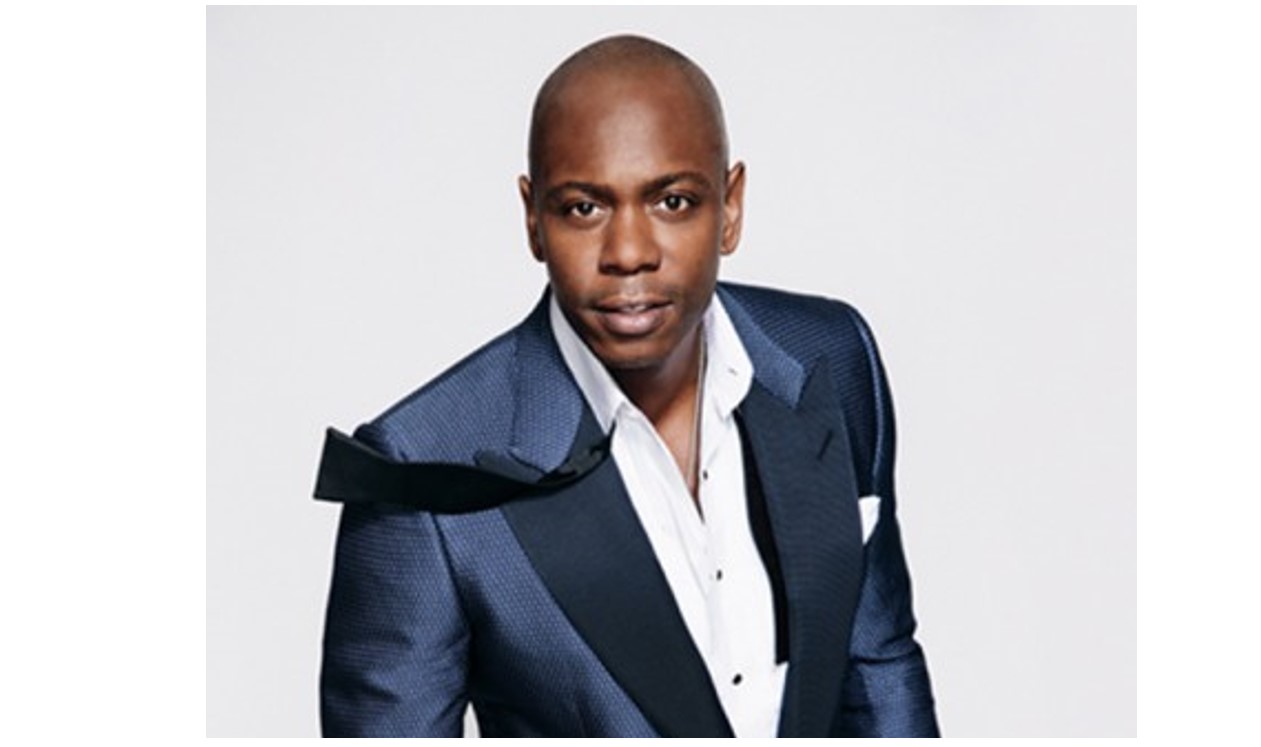Comedian Dave Chappelle, creator of the much-loved “Chappelle’s Show,” sat down Sunday for an interview with The Washington Post after addressing the graduating class of the Duke Ellington School of the Arts, his alma mater.
It was the first time, Chappelle said, he’d been asked to give a commencement speech.
“This was great for me today,” Chappelle said, in a dressing room at George Washington University’s Lisner auditorium. “Yeah, man. It feels like I was just in these seats yesterday. I’d never done anything like that before. I really enjoyed doing it and seeing everybody… Even though I never met any of these kids, I know what they just went through. I know the environment they came from, and it’s an honor to be reincorporated into that.”
Chappelle was in town for a couple of days before picking up the rest of his tour with dates in the Dakotas, Wyoming and Montana. Later this summer, he’ll travel to the U.K. and Canada. Here’s what the typically media-shy star had to say on a range of issues.
“Bill Cosby got taken down by a YouTube clip of a Hannibal Buress show,” said Chappelle, who considers Buress one of the most promising acts of his generation. “And Hannibal, I’m sure he didn’t mean to destroy Bill Cosby, but that’s what happened. I’m sure he didn’t mean to.”
Even though the allegations against Cosby had percolated for decades, it was the video that “reignited a firestorm,” Chappelle said. “The paradox of it — you could do a whole story about that to much fanfare from a certain swath of the community.”
If comedians hated camera phones before, it’s only gotten worse with the introduction of live-streaming services such as Periscope. Now audience members can not only upload a set to YouTube but broadcast an unfinished, evolving work in real time. Chappelle can’t stand this kind of thing and has taken efforts to limit their effect.
“For me, it’s more of a problem as a comedian who relies on the element of surprise,” he said. “So many people record your shows and put them on the Internet before you get a chance to do it, it’s almost hard to write fast enough to surprise an audience. In a lot of ways, they’re destroying comedy. I don’t think they mean to, but I don’t think people understand what they’re doing when they do it and the effect that it’s having. That’s why you don’t see a lot of the big comedians out anymore.
“We’ve had antidotes. What we’ve been doing is creating spaces where that’s just not cool anymore. Carla [Chappelle’s publicist] and I are working on a party right now. It’ll be the first party that’s ever gone on tour. It’s a juke joint party — live music — and we take it out of a traditional venue. We had one in a barn. We put on a full production. We brought a damn-near 20-piece band, a celebrity DJ. We went crazy. I’m not going to say celebrity names who I’ve spoken with about it, but a lot of people are interested in doing it just because it takes it back to essentially what we we all love doing. Artists you wouldn’t expect to see in a context like that.”
The Juke Joint Party, held in a barn in Yellow Springs, Ohio in May, featured rapper D-Nice and renowned harmonica player Frédéric Yonnet. Chappelle even crowd-surfed.
His team hasn’t gone so far as to confiscate phones and hand them back at the end of a show, like some sort of mobile technology coat-check. That’s just untenable. When it comes to phones, Chappelle simply tells the audience: “Don’t bring ’em.”
But do they respect the request?
“Naaa, na, na, na, na, na. Don’t go crazy, now,” Chappelle said. “Do they respect it? No.
“A lot of people just don’t understand it’s a problem. I don’t think that the focus is on it, but it’s become a problem. Prince has gone so far, I think, as to take legal action against fans if they do it. Nobody in the artistic community was mad at him at all because it has nothing to do with money as much as it has to do with protecting your art and protecting your livelihood, which is money, I guess. It has something to do with money, but I think it has more to do with protecting your work.”
Comedians from Chris Rock to Bill Maher to Jerry Seinfeld have lamented about playing colleges because there’s an expectation of political correctness that they say wasn’t as prevalent even 10 years ago. Perhaps because Chappelle has a long-standing reputation for informed irreverence, he hasn’t felt as confined by those strictures. Recently, Seinfeld addressed the PC issue as a guest on “Late Night With Seth Meyers.”
Chappelle backed up Seinfeld on this point.
“The PC issue is probably more of a problem for him because of the type of celebrity he was,” Chappelle said. “The show was so ubiquitous at one point, and it was a sitcom, so people aren’t used to seeing him say outlandish things even though I’m sure he has an outlandish sensibility. He’s renowned in the comedians’ circle for being an outstanding comedian. I’m talking about amongst his peers — I know not everyone universally says that — but within comedy, he’s outstanding… The reverb he hears back might be madder.”
By Soraya Nadia McDonald, Washington Post


